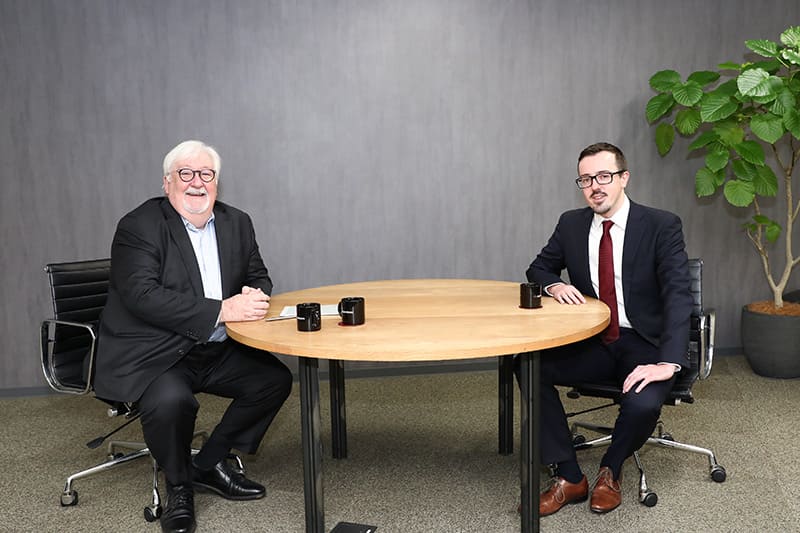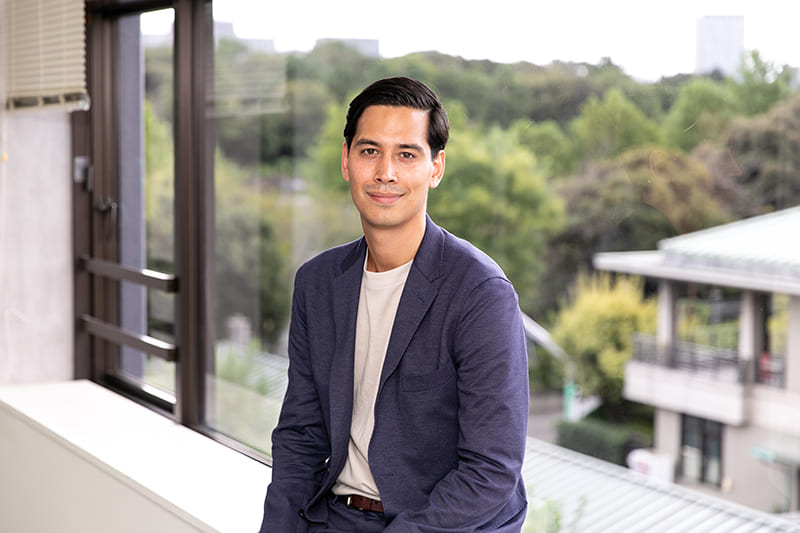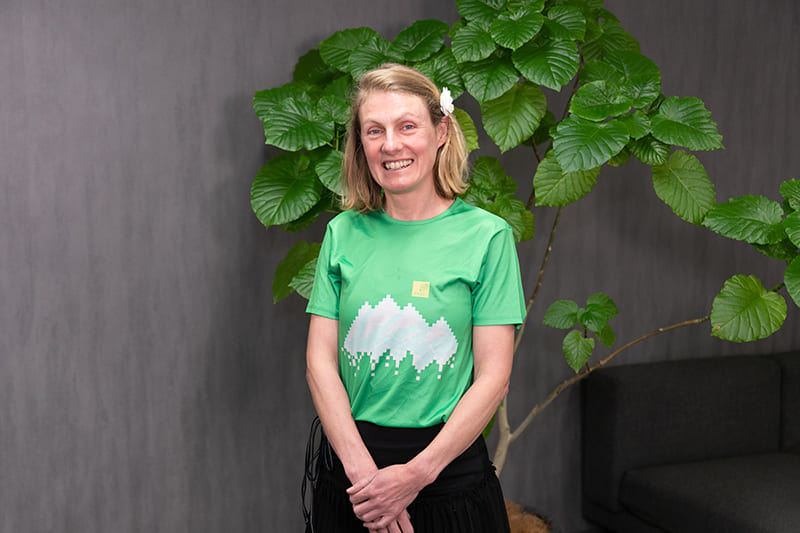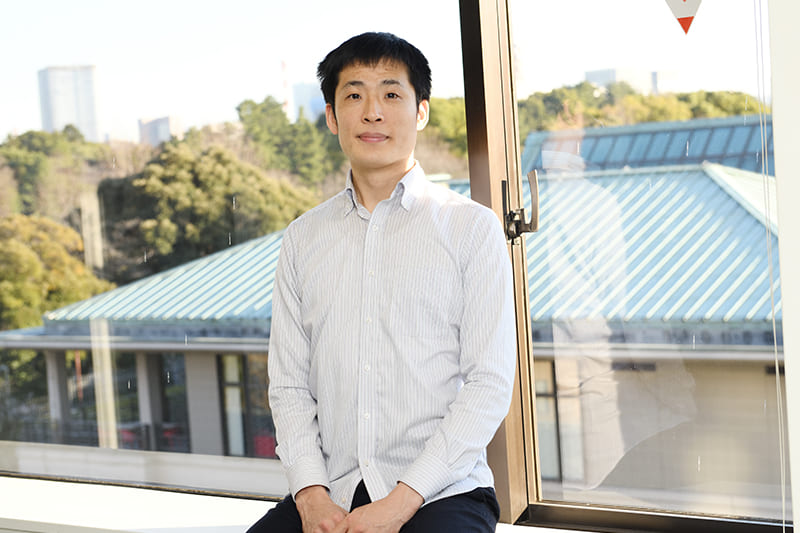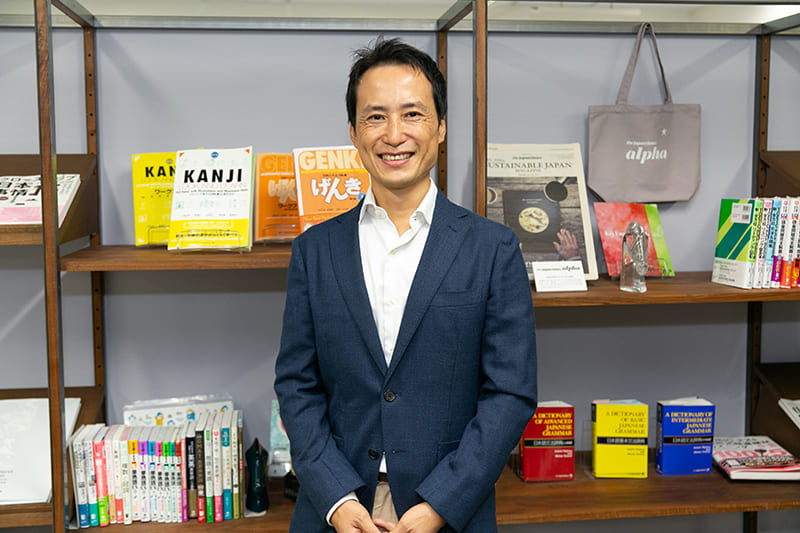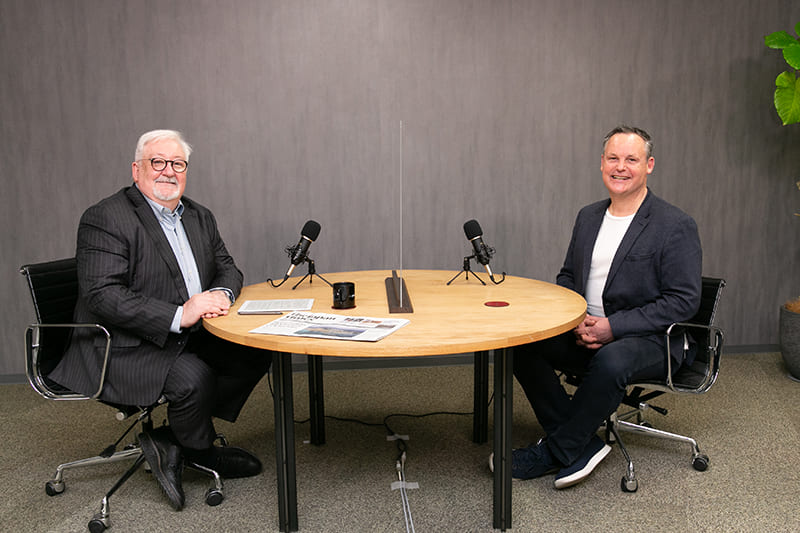January 26, 2024
Chris Russell is a news editor with an urgent message
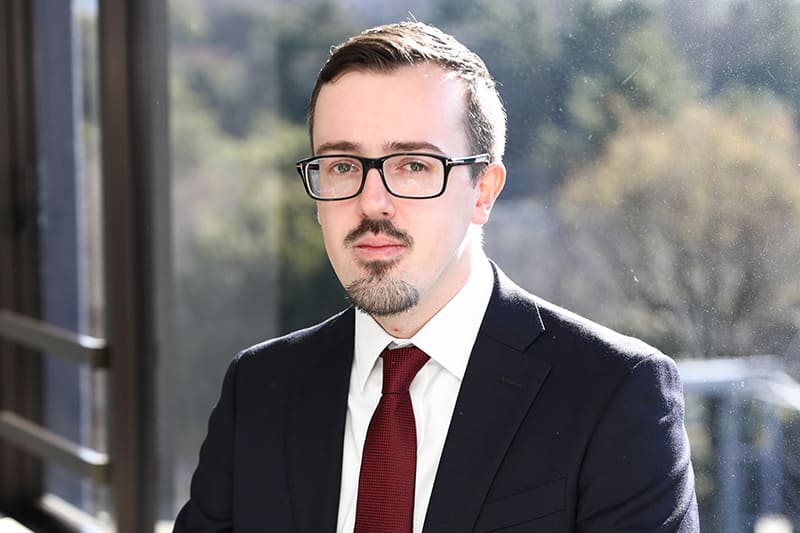
The tipping point for Japan Times editor Chris Russell to ramp up his engagement with climate change issues came with the release of the 2018 report from the United Nations’ Intergovernmental Panel on Climate Change (IPCC). With its bleak predictions about the planet’s health and analysis of the slow pace of change, Russell gained a new perspective on the problem and the way it affects politics, business and all of humanity.
“I always had an awareness about the issues surrounding climate change,” Russell explained, “but that report really added some urgency.” As an editor armed with an understanding of the scope and urgency of the issue, he committed himself to using his position to raise the alarm.
Now, as senior news editor of The Japan Times, Russell jointly oversees the recently added Our Planet page, among other things. He took time out of his busy schedule to sit down with Ross Rowbury and a small audience for the 37th Japan Times Roundtable to explain why Our Planet was started, why he feels a responsibility as an editor to increase awareness around sustainability issues, and what motivates him in his work.
Media and climate
Russell began by explaining the importance of the climate change story as well as his belief that the issue’s connection to Japan has not been thoroughly covered in English-language media. “I wanted to encourage more coverage of these issues in The Japan Times, and that all culminated about a year ago in the start of our new section, Our Planet, with its focus on climate change, environment laws and science more generally, as well as disaster response,” he explained. He believes the section is giving more coverage to climate-related topics across different beats, from art to sports: “It’s been satisfying to push that edge forward and keep developing it.”
Russell believes there is no escaping the need to explain the complexity of the science behind climate change and the challenges of dealing with it. “Science is tough — there’s so much jargon around this — but in terms of how it relates to journalism, it’s a bit of a balancing act. It’s important to present it to a reader in a way that it is going to be accessible, but of course with these issues it’s not just the science,” he said. “There’s also the questions of politics, power, money, finance, all the social ramifications and all the other aspects around these issues, so you can’t ignore that, but science is the foundational issue through it all.”
Russell said that explaining the science helps ensure that people are better prepared for the public discussion surrounding the issue: “If the government or a party or corporation is pursuing a certain solution or touting a solution on one of these issues, then of course you’ll need to know the scientific arguments around it so there’s less uncertainty about what agenda they’re pushing.”

IPCC report, clear benchmarks
Russell conceded that reporting on climate can be a fraught process because today people can go on the internet and find information to argue any position that suits them, sometimes conspiratorially pushing the experts out of the discussion, a situation he believes we saw in the recent pandemic, when nonacademic positions on the science were often the loudest. This is why he finds great value in IPCC reports, as they represent the clearest baseline in any discussion surrounding the issue. “It does make it easier to have something like the IPCC,” he said. “The way that process works means it does provide that clear benchmark. They are the world’s best scientists in this area, it signed off by everyone, so there’s a really strong degree of confidence in what they are saying, so having that makes it a lot easier to report on climate.”
With the evidence of climate change becoming more apparent in daily life, Russell sees climate denialism now becoming “a very niche position.” He added: “I think people who may have been historically skeptical about the existence of climate change now don’t tend to do that. I think the issue is more around how do you respond to it, what does the transition look like, what are the costs, and how are those costs distributed across society, and I think that is where the skepticism now manifests itself.”
The ‘doomer’ narrative
Russell is solaced that the debate around climate change has shifted from one of not even acknowledging the problem exists to one of managing the response to it. He does believe the response is insufficient, citing the U.N. Environment Programme’s finding last year that even if governments around the world were to implement all of their currently declared climate goals, the Paris climate targets would still be breached. However, he is made more optimistic by the fact that governments are at least beginning to put more ambitious plans in place.
Russell highlighted the Biden administration’s recent Inflation Reduction Act as a positive example. “I don’t think anyone would seriously say it’s sufficient, but it’s still a major piece of legislation for what it’s done for EVs, renewables, energy and so on. And that is now cascading down through the rest of the world in terms of energizing competition over green technologies generally.” He believes that the U.S. act and other recent legislation such as the European Union’s Carbon Border Adjustment Mechanism allows some optimism to creep in. “It offers a corrective to that ‘doomer’ narrative that many young people have, but there still is that base reality that we are still far off from where we need to be on this.”

On the climate radar
Russell believes that a page dedicated to climate ensures there is pressure in the newsroom to always be reporting on the issue, rather than it being just a nice thing to have on occasion. “I think a dedicated page means that in the long term it will mean stories just feeding out into the newsroom more generally, and issues around the topic will become embedded.”
His next project will be taking part in the Oxford Climate Journalism Network, a program run by the Reuters Institute for the Study of Journalism at Oxford University that is dedicated to helping reporters and editors around the world improve their reporting on climate. “They really liked what we are doing with the Our Planet page and The Japan Times’ reporting on climate generally, so they wanted to offer me a place on the program, so it’s been something I’ve had on the radar for a little while,” he said. “It’ll mainly be a lot of listening and learning from experts — and a lot of late nights online.”
